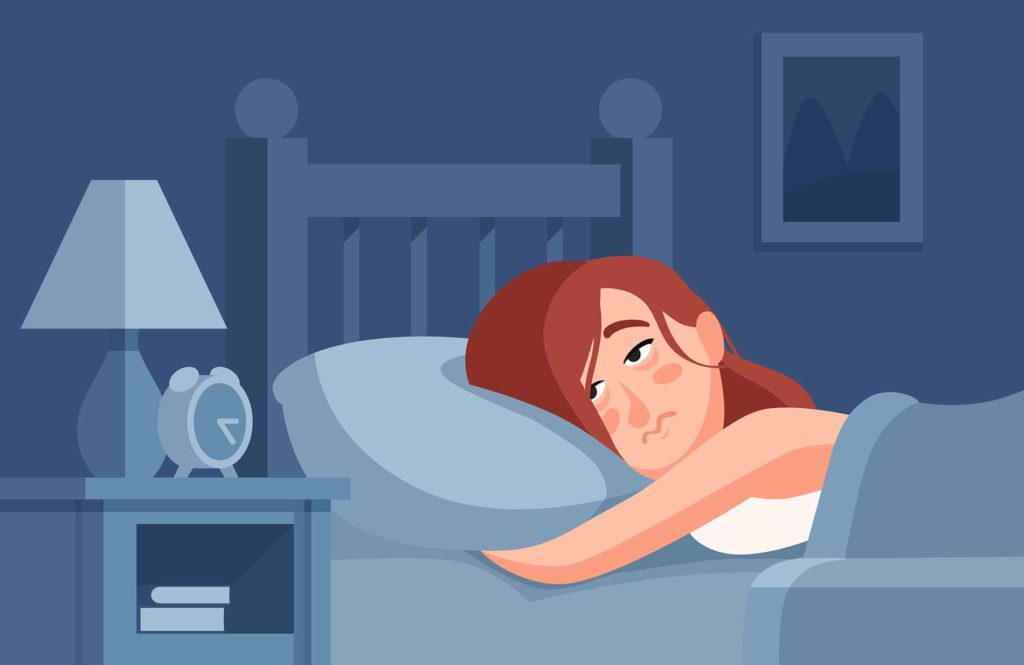Ever wondered why you aren’t getting your solid nights rest?

The counting sheep might not be helping much. Here are a couple tips that just might do it for you.
- Go to bed and wake around the same time every day
- Engage in relaxing activities prior to bedtime
- Exercise regularly but not late in the evening
- Avoid eating immediately before bedtime
- Eliminate daytime naps
- Minimize external disruptions like light and noise
What to eat?
- Avoid foods or beverages in the afternoon and evening that contain caffeine
- Avoid alcohol and nicotine use late in the evening
- Drink a glass of water before bed
- Do not use electronics late in the evening
- Reduce the amount of time spent watching TV or reading in bed
If you have trouble falling asleep, do not become anxious. Leave the bedroom and do a relaxing activity until you become drowsy.
1. Avoid Blue Light
Electronic devices, like phones and laptops give off blue light, which hurts your sleep cycle. Avoid watching TV before bed. Likewise, turn off your laptop and don’t use your phone before bed.
2. Lower The Temp
Make sure your room has the right temperature before trying to sleep. The environment should neither be too cold nor too hot. Set the thermostat at 60 to 65 degrees Fahrenheit for good sleep.
3. Follow a Schedule
Having a sleep schedule will make it easier for you to fall asleep at night. Your body follows an internal clock, the circadian rhythm. You can do this by going to bed at the same time daily.
4. No Napping
If you are wanting a daytime nap keep it down to 20 or 30 minutes max. Don’t nap for hours late in the day, as doing so will keeping you up at night. If you fall into an afternoon slump, shake it off by eating a protein bar or taking a walk.
5. Put The Clock Away
Putting your clock away does wonders for your sleep cycle. The more you glance at the time, the more your brain the race at the thoughts of how little time you have to sleep and how soon it will be morning. If you keep the clock inside a drawer or face it the other way maybe under your pillow, you’ll have an easier time sleeping.
6. Practice Mindfulness
If you’re struggling with work stress or anxiety due to personal problems, do yoga or mediate to relax your body. Studies have also shown meditation to be beneficial for sleep. Meditation enhances melatonin levels, improving your sleep pattern.
7. Combat Back Pain
If back pain is keeping you up at night, the best way to combat it is by using a leg pillow. Besides reducing back pain, it will also keep your hips comfortable during the night.
8. Breathing Exercises
Breathing exercises, such as the 4-8-7 can help you fall asleep quickly. These exercises promote calmness and help your brain relax.
9. Watch Your Mattress
It’s likely that the allergens from your mattress are keeping you up at night with constant sneezing and itchiness. Over time, a mattress collects things like allergens, dirt, and bacteria. It’s best to seal the mattresses with a dust proof cover to prevent these problems.
10. Don’t Work In Bed
Yes, it’s comfy and cozy. But don’t work in your bed Instead, keep the laptop at the work table and avoid bringing it to your mattress. Your brain associates different places and things with certain activities. If you only sleep in your bed, your brain will realize it’s time to rest as soon as you get under the covers.


